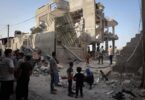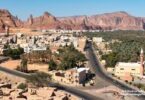Shabir Khan
The inclusion of women and their participation in electoral process is extremely significant for the progress and happiness of any society in the world. It is crucial that women in Pakistan also actively participate in political activities along with their men for realizing the dream of a progressive and vibrant society. Equal participation of men and women is a fundamental political, economic, social and human right. The Universal Declaration for Human Rights-1948, in its first article declared that “all human beings are born free and equal in dignity and rights.”
These guiding principles became part of all the subsequent international, regional, and national laws for the comity of nations. Developed societies that have recognized and acted upon this principle have embarked on a journey of political, economic, social, and human advancements which were once seems impossible.
After the creation of Islamic Republic of Pakistan, the country not only became member of several international and regional organizations but Pakistan also signed and ratified many bilateral and multilateral treatise and conventions whereby Pakistan as a member state pledged to provide equal opportunities to men and women in political and electoral processes. These international agreements and conventions include but not limited to UDHR, CEDAW, ICCPR, CRPD, ICEARD, and SDGs.
According to the constitution of Islamic Republic of Pakistan and the Election Act 2017, the right to vote and exercise of free well is not only women’s legal and constitutional right but also their national obligation and responsibility. The Election Commission of Pakistan (ECP) is committed to ensuring that women are able to exercise their constitutional right to vote, thereby women in this country are able to participate in the electoral process of the country.
Through their vote and representation in parliament, women become equal partners in the decision-making process of the country. It is the constitutional responsibility of ECP to conducted free, fair, transparent and inclusive elections which ensure that all citizens of Pakistan participate in the democratic progress of the their motherland.
The ECP is taking special measures to ensure that women in this country are able to participate freely and equally without any fear and discriminations in all stages of electoral cycle. As part of these efforts, ECP has established a full-fledged Gender and Social Inclusion (GSI) Wing, headed by a woman to ensure the participation of women, transgender, people with disabilities (PWDs), and religious minorities in the electoral process. Similarly, at the provincial level, the same wing exists in provincial headquarters, with the primary objective of implementing policy guideline and modern approaches at grassroots level to provide equal opportunities to marginalized sections of the population in Pakistan’s electoral processes.
Since 2016, ECP has formed Gender and Disability Electoral Working Group (GDEWG), at Islamabad and provincial capitals that works with relevant stakeholders and civil society organizations (CSOs) with significant field experience in electoral issues and gender mainstreaming. Representative of Women, PWDs, Transgender and religious minority organizations are permanent members of this platform. The group meetings are held regularly at the offices of the provincial election commissioners, or at any other location if need be, where challenges and issues related to the political participation of women, transgender, PWDs, and minorities are thoroughly discussed among ECP’s officials and other members. Suggestions and feedback from members are solicited and strategies are developed to address the challenges faced by the marginalized communities in the electoral process in any part of the country.
In this regard, ECP is grateful to its development partners who have always provided support and technical assistance to ECP in its efforts to provide equal opportunities to every eligible voter to take part in the electoral process of the country. Furthermore, to ensure inclusion and raise awareness among public, every year, ECP vigorously celebrates International Women’s Day, International Day of Persons with Disabilities (IDPD), International Transgender Day of Visibility, and Voter Day. These days are not only celebrated at Secretariat but in all provinces with the aim to educate general public on electoral issues, mobilize political will and resources to address challenges, and to celebrate ECP’s achievements in social inclusion in electoral arena.
In line with the ECP’s third Strategic Plan 2019-2023, ECP is implementing numerous policy options to ensure that all eligible citizens, especially women and socially excluded classes, obtain identity cards and are included as voters. For this purpose, ECP welcomed and entered into a collaboration with its development partners and stakeholders such as NADRA, civil society organizations (CSOs), political parties, media, and parliamentarians. As guided by its strategic plan, affirmative actions have been taken to facilitate female staff and socially excluded groups, especially in terms of separate restrooms, day-care facilities, separate space for prayer, special measures for transport during elections, strict compliance to the prescribed government quotas in recruitment and favorable consideration in transfers and posting decisions.
Furthermore, to ensure that the office environment is secure and conducive for women and socially excluded groups, an overarching framework is being established through Gender Mainstreaming and Social Inclusion Framework (GMSIF) to supports and complements the effective implementation of the ECP’s Strategic Plan. In order to achieve these objectives, ECP has conducted multiple consultations workshops, roundtable and focused group discussions (FDGs) and debriefs with all stakeholders in all four provinces of the country which has resulted in the first draft of GMSIF document in line with the international standards and protocols which will soon be presented to the Commission for approval.
As a legal framework, Elections Act 2017 ensure women’s equal participation in elections. There are several provisions that encourage and deals with the women participation in electoral process. One of these provisions binds ECP to conduct re-polling in any constituency where women’s turnout is less than 10% of the total votes polled on the election day. Moreover, any action that prevents women from voting or participating in elections is now considered a crime.
A per the Elections Act 2017 political parties are now required to nominate at least 5% women candidates on general seats. ECP is also encouraging the establishment of polling stations specifically for women, where female polling staff are deputed on election day.
ECP research and baseline surveys suggest that in addition to other reasons, the main reason for women’s low turnout on poll day is because women as voter are less registered than men. A few years ago, the voter lists in Pakistan recorded gender gap of 12% on voter lists. This means that 12% of women in Pakistan, who are eligible to vote, were not able to participate in the electoral process due to the lack of an National Identity Card (NIC). As per the Elections Act 2017, on urgent basis, ECP took several measures to reduce the gender gap. These measures included ECP-NADRA Joint Campaign for Women NIC/Voter Registration in all districts of the country.
The special campaign was launched in 2017 with its Phase-V still being implemented in many districts of the country where women can obtain their identity cards through mobile registration vans (MRVs) in their locality and do not have to travel long distances to NADRA registration centers . As a result gender gap in electoral rolls has been reduced to 8% with addition of millions of women as a voter. This is a significant success story for ECP, NADRA, other stakeholders, and people of Pakistan. ECP will continue this campaign in collaboration with all stakeholders till further minimization of gender gap whereby all eligible citizens in the country can participate in electoral process.
Along with this, District Voter Education Committees (DVECs) have been established by ECP in all districts of the country. These committees include representatives from local government, civil society organizations (CSOs) political parties and media. Monthly meetings are held on voter awareness and voter education programs to provide information to general public about the electoral process. In addition, various seminars and workshops are held at the provincial level, and special awareness programs are broadcasted on TV and social media platforms, in which election commission officials participate to provide information and guidance to public and sensitize them on the importance on a variety of subjects related to elections. The main purpose of these activities is to encourage the participations of underprivileged classes in the electoral process and inform them on ECP’s special measures for providing a conducive environment for everyone to be part of Pakistan democratic process.
The ECP is cognizant of the fact that women face several administrative as well as social and cultural hurdles on election day. Therefore, polling staff is informed and directed during their pre-elections training that in accordance with the Elections Act 2017, sick, pregnant and disabled women and transgender would be given preferential treatment to cast their vote. PWDs are provided with postal ballot facility. During the polling process, no person present at the polling station is allowed to obstruct women and any other person from exercising their right to vote. Security staff is also instructed during their training that women voters should not be prevented from entering the polling station and strict actions should be taken against individuals exhibiting inappropriate behavior and undue influence on women or any voter. All of these instructions are also included in the training handbook for polling staff.
In our country, women are excelling in every field of our human life as doctors, engineers, professors, judges, bankers, soldiers, leaders and politicians and contributing in the development of our society in different ways. As a democratic nation, where every vote carries significance, the Election Commission considers the inclusion of women and marginalized communities in the electoral process is a prerequisite of a genuine and vibrant democracy. The aforementioned initiatives is evidence of the fact that ECP as an institution truly believe in equal opportunities for both men and women in politics and democracy.







